HEARING CARE
Hyperacusis: Causes of Hearing Sensitivity and Treatment Options
By Team Hearzap | May 30, 2025
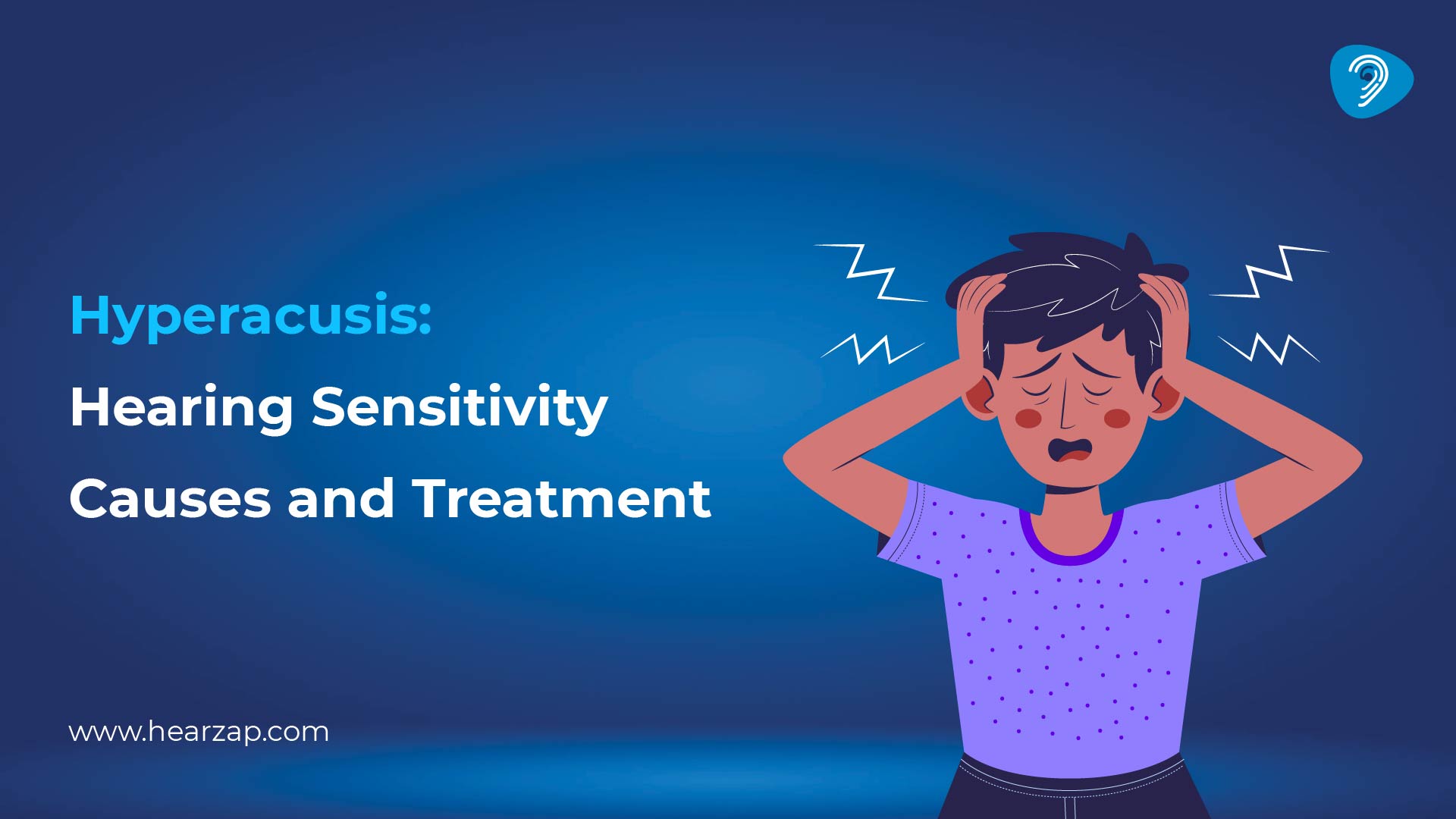
Ever happened to you that you flinched or reacted adversely to the sound of a door shutting, or normal noises like clanking of cutlery and water flow became agonizingly loud? If so, you might be suffering from hyperacusis, wherein the ears become oversensitive to sounds. It lends an overwhelming feeling to one's world, even in environments considered fine by most people. First let us understand what hyperacusis is, what causes it, and how it is treated, before you regain control over your comfort.
What Is Hyperacusis?
Hyperacusis is the heightened perception of sound, in that certain noises seem too loud or painful to bear, even though they are at normal volume. Unlike your everyday hearing loss or tinnitus, this condition can feel downright invasive and isolating. You may find yourself withdrawing from venues, conversations, or activities, not because your hearing is fading, but because it feels too intense. Hyperacusis is, by and large, considered to be rare, when in fact it is more common than you think. So, you're not alone, and there are treatments available.
What Causes Hyperacusis?
There is no one cause attributed to hyperacusis, but several may act as triggering agents. Constant exposure to loud noises is one of the causes. You might have experienced a loud concert, worked in a noisy place, or somehow had a sudden blast of sound quite close to your ear. Such events may set some changes in the way your brain processes sound. Stress and anxiety can also play a major role. When your body is on high alert, your senses are heightened, including your hearing. Head injuries can contribute to sensitivity too. Even migraines or certain medications can shift how sound is perceived by your brain.
Living with Hyperacusis
If you’re struggling with hyperacusis, daily life can feel like a minefield. Sounds that others barely notice like traffic, clapping, laughter, might feel like jolts of pain. This can make you more withdrawn or irritable, even when you're doing your best to keep up appearances. You might start carrying earplugs, avoiding restaurants, or skipping social events. While these choices seem like a form of protection, over time, they can isolate you and make the condition feel worse. That’s why it’s important to seek help early rather than just coping in silence.
How Is It Diagnosed?
The first step is to speak with a hearing professional. A hearing test can rule out or identify any coexisting conditions like hearing loss or tinnitus. More specialized tests will help assess your loudness discomfort levels, basically how loud sounds need to be before they become painful to you. It’s not about proving the problem exists, it’s about understanding how your ears and brain are processing sound, so you can get the support you need.
Treatment Options
While hyperacusis can feel overwhelming, there are effective treatments to help retrain your ears and your brain. One common approach is sound therapy. This method gradually introduces you to low level background sounds that you listen to daily. Over time, your tolerance to sound improves. Think of it as helping your brain recalibrate how it reacts to noise.
Cognitive behavioral therapy (CBT) can also make a big difference, especially if anxiety or stress is making your sensitivity worse. CBT helps you reframe your reactions to sound and reduce the fear or discomfort associated with certain noises. In some cases, hearing aids with sound generators are used. These don’t just amplify sound, they deliver a gentle background noise to help desensitize your ears and reduce the contrast between quiet and loud environments. It’s important to avoid complete silence, as tempting as it might be. Blocking out all sound can make your ears even more sensitive over time. Instead, aim for a balanced, consistent sound environment.
Take Control of Your Hearing
You don’t have to live in discomfort. If you’ve been struggling with hyperacusis, know that there’s help available and relief is possible. The sooner you take action, the sooner you can reclaim your comfort and confidence in everyday life. Reach out to a hearing care provider and get a proper evaluation. Together, you can create a plan that works for your lifestyle and hearing needs. Your ears deserve care, and so do you.
Also Read: Conductive Hearing Loss
Related Blogs
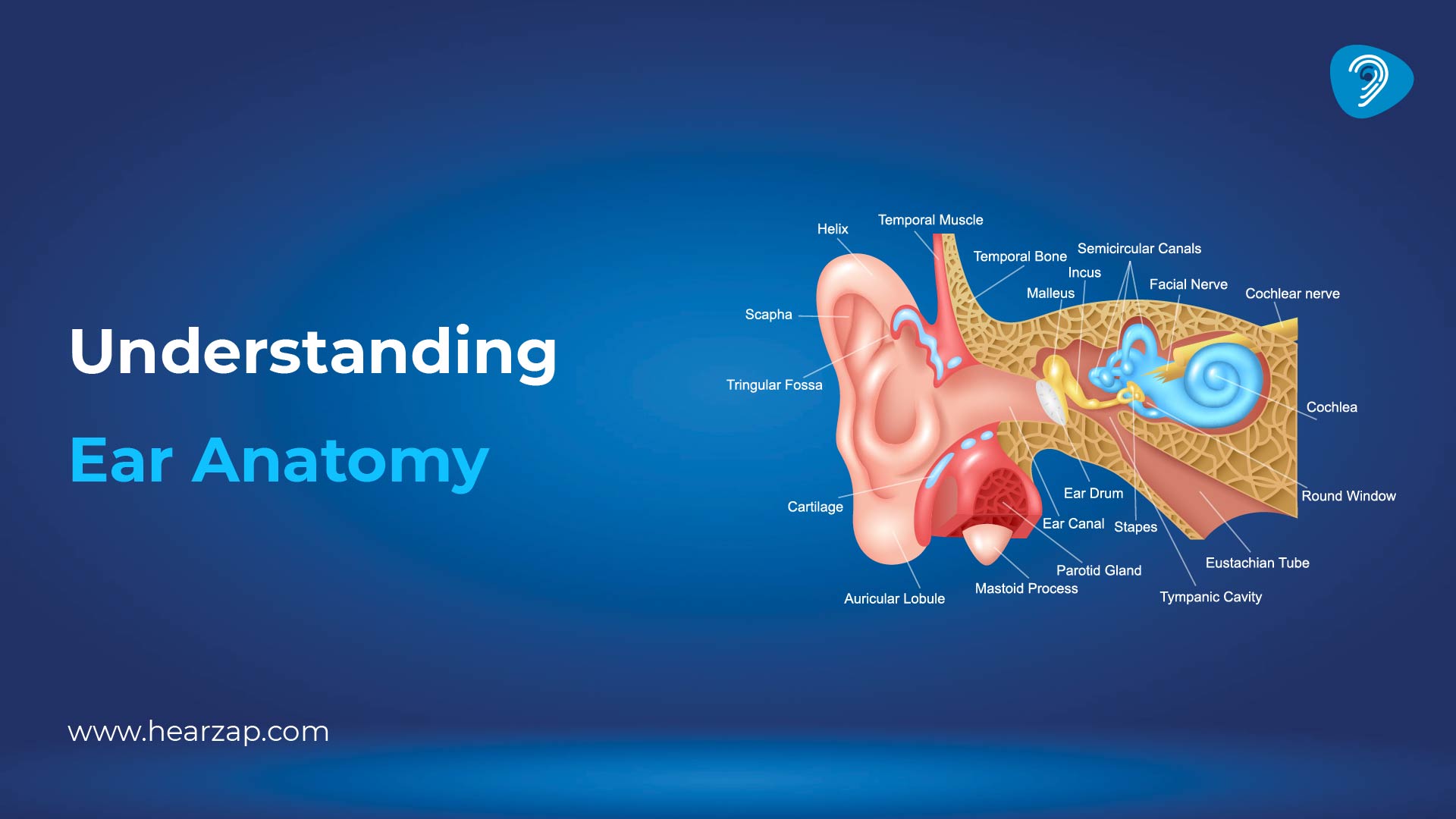
Understanding Ear Anatomy: Parts and Their Functions
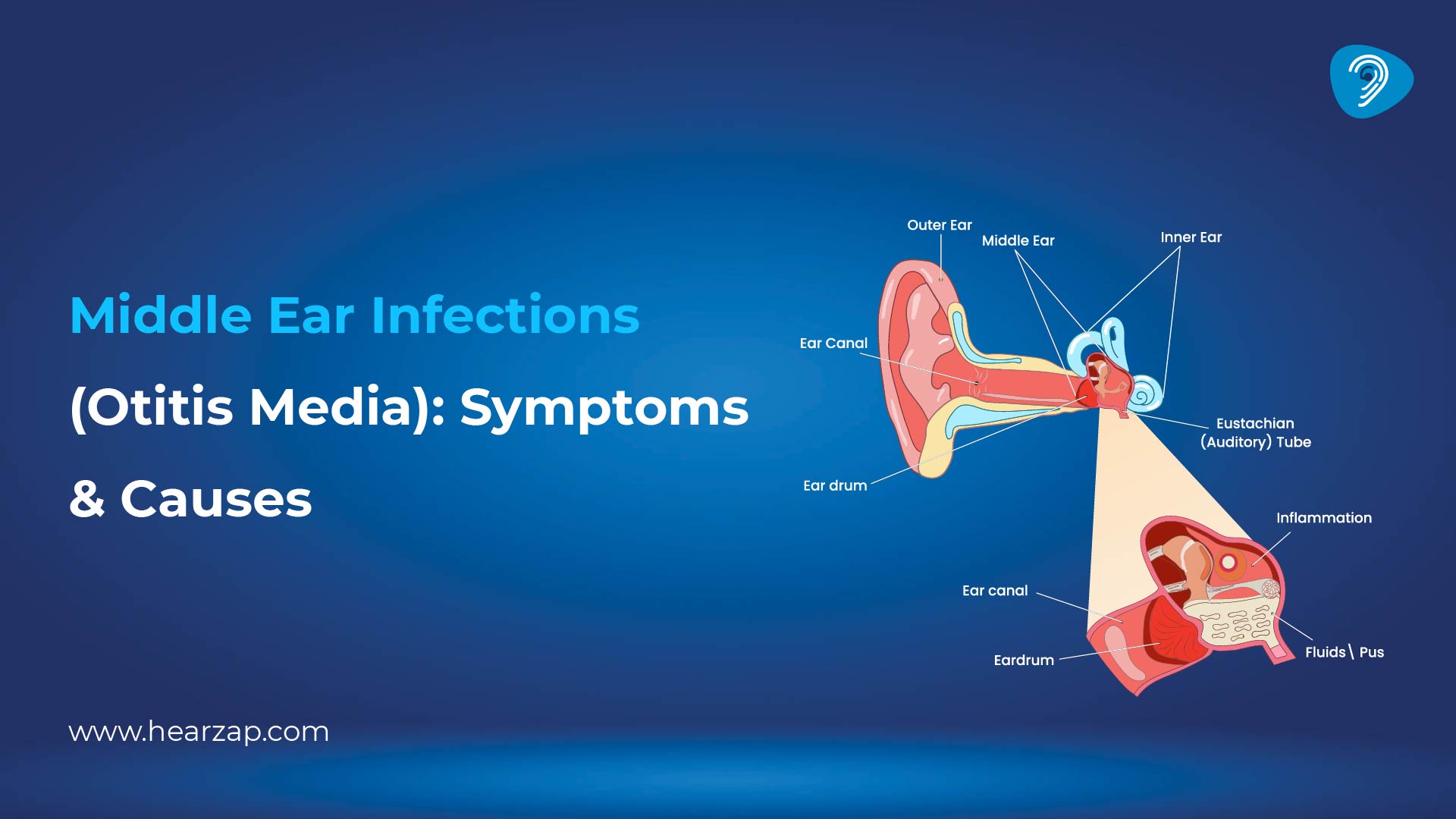
Middle Ear Infections (Otitis Media): Symptoms & Causes
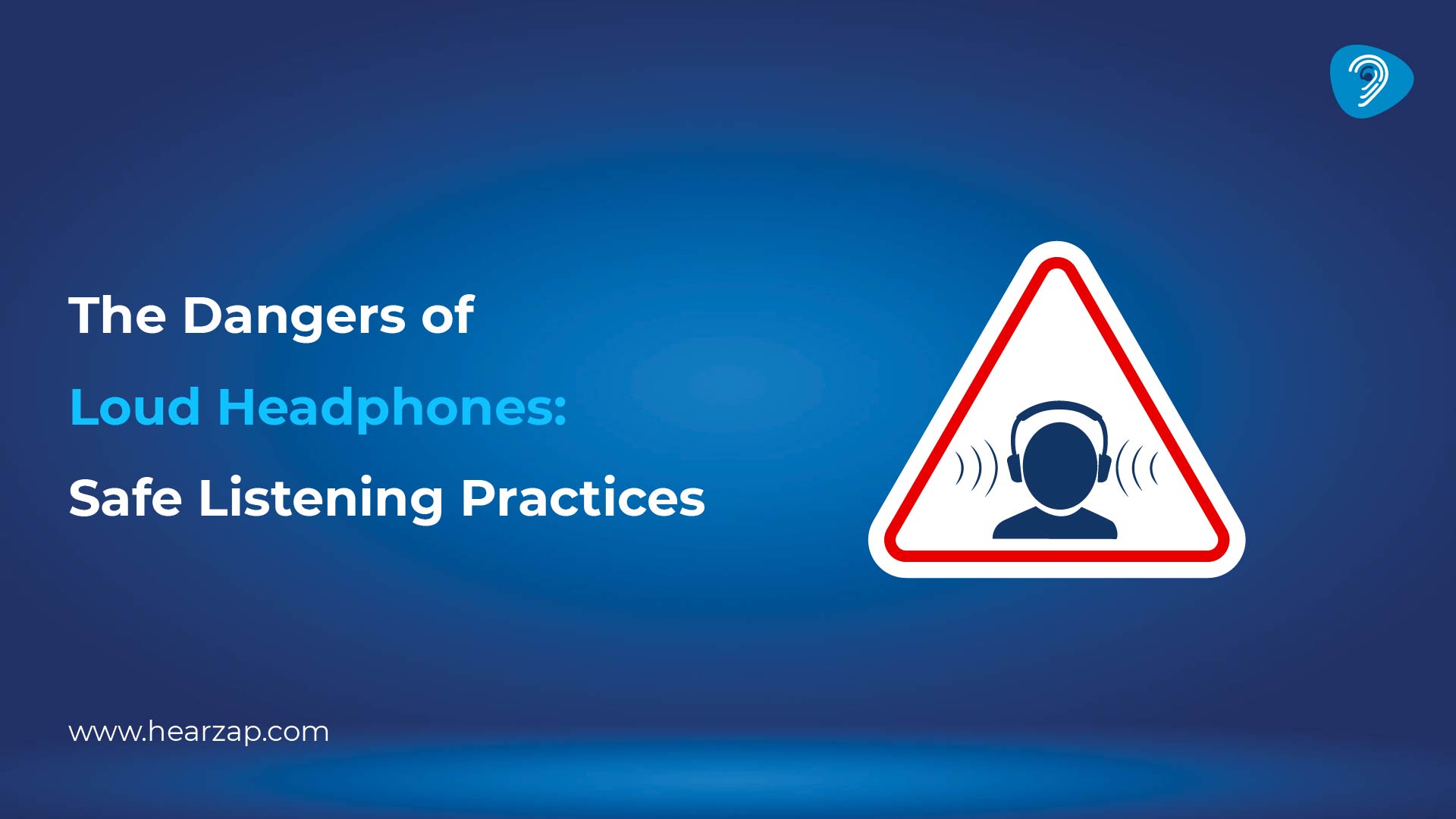
Are Your Headphones Damaging Your Hearing? Know Before It’s Too Late
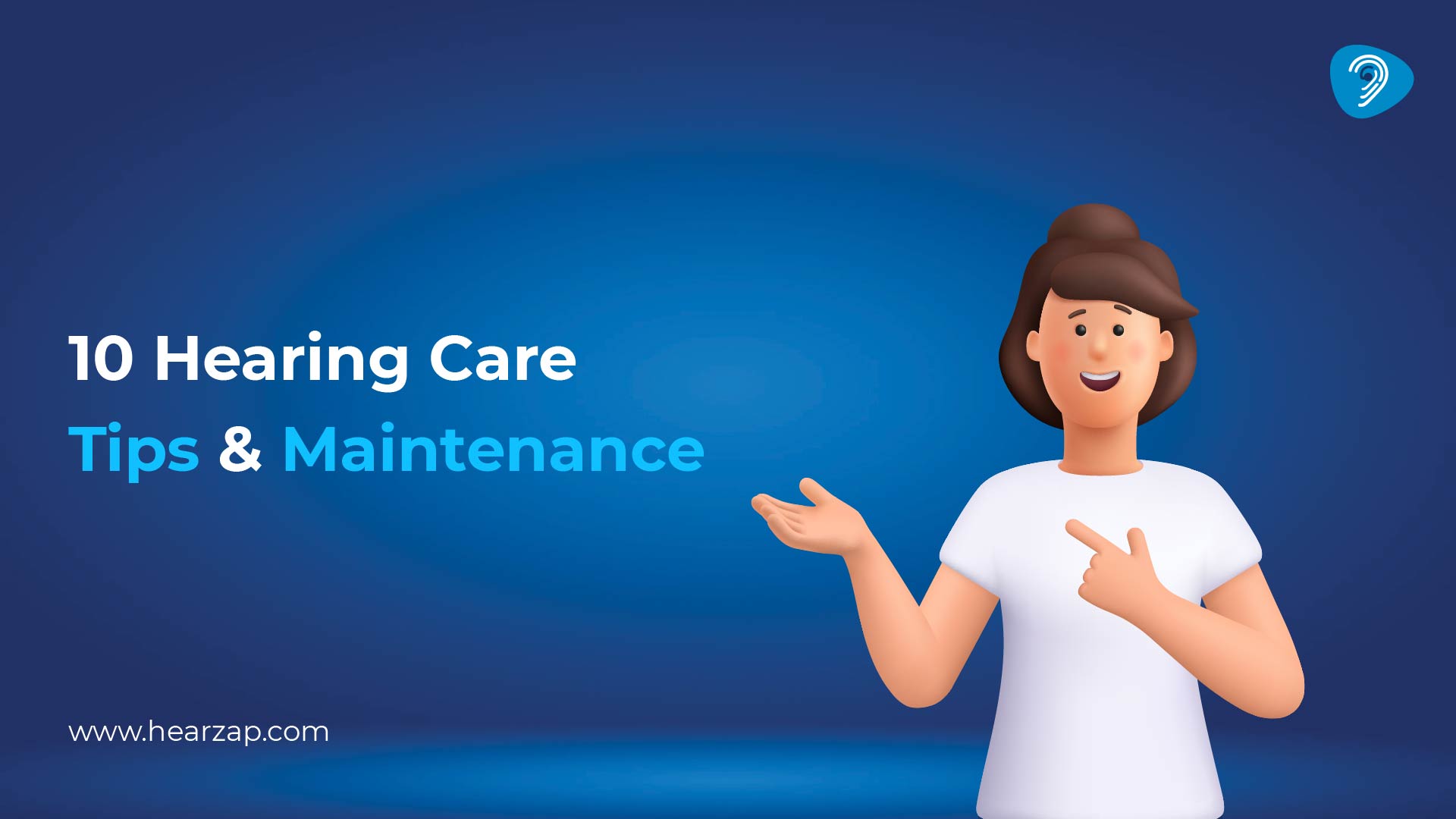
10 Hearing Care Tips & Maintenance

5 Ways Healthy Hearing Can Improve Your Mental Health
Contact us
We are here for all your hearing needs, from hearing tests to hearing aids. Fill out the form below, and we will give you a call soon.
Please enter a valid mobile number with 10 digits.
Recent Blogs
By None | Dec. 4, 2025
By None | Dec. 2, 2025
By None | Nov. 28, 2025
By None | Nov. 27, 2025
By None | Nov. 26, 2025









